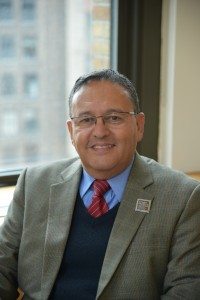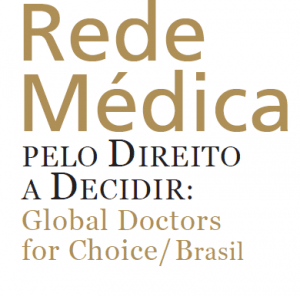Brazil (Rede Médica pelo Direito de Decidir)
Brazil: Reproductive Health and Abortion
- Legality:
- Abortion is permitted in cases of rape, when the woman’s life is at risk, or in cases of anencephaly. For these cases, abortion is available from the National Health Service.
- Contraception:
- In 2012, 63% of women used contraceptives, yet 54% of births were unplanned.
- Per a 2016 National Abortion Survey (PNA):
- Abortion is common and persistent among women of all social classes, racial groups, educational levels, and religions.
- Yet abortions are more frequent among women of lower educational levels, who are black, brown and Indigenous, and live in the north, northeastern, and mid-western regions.
- In 2016, nearly 1 in every 5 women had at least one abortion by the age of 40.
- In 2015, ~416,000 women had an abortion.
- Half of all women used medicine to abort and nearly half of these women were hospitalized to complete the abortion.
- Complications:
- After the introduction of misoprostol, the treatment rate for complications and the severity of complications declined: from 1992 through 2012, the treatment rate fell by 76% for severe complications, and by 57% for less-serious ones.
- Many women who qualify for legal abortion are unable to access abortions and access to safe but illegal abortion services is limited to women with economic means.
- Unsafe abortion is the 4th leading cause of maternal mortality in the country (2004).
- ~1-4 million illegal abortions occur in Brazil annually (2004).
- Sources:
- http://worldabortionlaws.com/map/
- https://www.tandfonline.com/doi/pdf/10.1080/17441692.2014.986167
- http://www.evidencias.com.br/pdf/publicacoes/9c1e501fc9c5e71d708e6c9f1ff2cf10.pdf
- http://www.scielo.br/pdf/csc/v22n2/en_1413-8123-csc-22-02-0653.pdf
- https://www.hrw.org/legacy/women/abortion/brazil.html
- https://www.guttmacher.org/report/abortion-worldwide-2017

GDC/Brazil: Recent Accomplishments
- Expanded women’s access to abortion medications:
- Collaborated with key stakeholders to influence:
- The centralized purchase of misoprostol and manual vacuum aspiration (MVA) equipment by the Brazilian Ministry of Health
- The final registration of the oral and sublingual presentation of misoprostol by the ANVISA (the Brazilian Health Regulatory Agency, similar to the Federal Drug Administration/FDA in the U.S.)
- The review of approval of mifepristone by the ANVISA
- Several hospitals updating their misoprostol protocols and provision (e.g., Universidade Federal do Amazonas, Pontifícia Universidade Católica, and Hospital Santa Marcelina)
- As the majority of abortions worldwide occur within the first trimester and self-provision of medical abortion has been proven safe, the availability of these medications is essential to ensuring access to safe abortion.
- Collaborated with key stakeholders to influence:
- Trained medical professionals in abortion advocacy:
- Comprehensive Abortion Care in Mozambique (8 participants)
- Pre-FIGO Reproductive Health Physician-Advocacy (30)
- Assisted GDC/Mexico to provide four workshops (80)
- Mitigated conscientious objection (CO) to abortion:
- Trained 100 medical professionals in Brasília regarding sexual violence and the legal abortion provision, in order for providers to understand when and how to safely provide abortions and for women to understand their legal rights to abortion.
- Participated on a CO debate with 50 doctors and nurses at the Hospital Amador Aguiar in Osasco/São Paulo and distributed GDC’s White Paper on CO.
- Provided a video interview on CO.
- Provided an interview to several national newspapers (including “O Globo”) addressing the impact of CO and the refusal of care by medical professionals on women who were survivors of rape.
- Led a post-abortion care / comprehensive abortion care (CAC) train-the-trainers workshop with eight doctors and nurses in Mozambique.
- Engaged in political advocacy:
- Campaigned to decriminalize abortion in Brazil:
- Participated in a Supreme Court public hearing
- Sent a letter supporting abortion legalization
- Engaged in several interviews, many of which were televised
- Cultivated partnerships to advance abortion rights:
- AADS, Article 19, Association of Judges for Democracy, Catholics for Choice, Curumin Group, FEBRASCO, Global Health Strategies, SOGESP, etc.
- Responded to the proposed bill PEC 181 which, if passed, would threaten to completely criminalize abortion in Brazil.
- Interviewed by “O Estado de São Paulo,” a media source with wide national circulation, and emphasized the risk of criminalizing abortion (“A lei não salva o feto, mas mata a mulher”).
- Alerted GDC to this matter, shared valuable local perspective, and helped craft the letter GDC submitted to the Brazilian Federation Supreme Court.
- Played a key role in connecting GDC to Chilean physicians during the final process of Chile debating the proposed (and now approved) legalization of abortion.
- Participated in variety of events to highlight barriers to access and promote ways to provide comprehensive care.
- Campaigned to decriminalize abortion in Brazil:
GDC/Brazil: Leadership
Dr. Cristião Fernando Rosas is the founder and lead doctor of GDC/Brazil and Dr. Maria José de Oliveira Araújo is the co-lead doctor.
GDC/Brazil is guided by an Advisory Committee consisting of experts in the field of reproductive health and rights.
Catholics for Choice/Brazil serves as GDC/Brazil’s fiscal sponsor.
GDC/Brazil: Lead Doctor Profiles
 Cristião Fernando Rosas, MD
Cristião Fernando Rosas, MD
GDC/Brazil Founder and Lead Doctor
Prior to retirement, Dr. Rosas served as the Obstetrics Clinic Director at the Maternity School of Vila Nova in São Paulo, Brazil. He also has served as the president of the National Commission of Sexual Violence and Legal Abortion of the Brazilian Federation of Gynecology and Obstetrics Associations (FEBRASGO), the coordinator of the Southern Cone Committee on Sexual and Reproductive Rights at the Latin American Federation of Societies of Gynecology and Obstetrics (FLASOG), an advisory board member of the Latin American Consortium Against Unsafe Abortion (CLACAI), a member of the Initiative for the Prevention of Unsafe Abortion at the International Federation of Gynecology and Obstetrics (FIGO), the secretary of the National Commission at the Sexual Violence and Legal Abortion of the Gynecology and Obstetrics Society of Brazil, and a member of the Technical Board of Women’s Health of the Regional Medical Council of the State of São Paulo.
 Maria José de Oliveira Araújo, MD
Maria José de Oliveira Araújo, MD
GDC/Brazil Co-Lead Doctor
A women’s rights activist and physician, Dr. Araújo, specializes in pediatrics and maternal and child health in São Paulo, Brazil. She also has served as the coordinator of the Women’s Health Technical Division at the Brazilian Ministry of Health, the coordinator of the Women’s Health Technical Division at the Municipality of São Paulo, and the national spokesperson on Health Rights for the Brazilian Platform of Economic, Social, Cultural, and Environmental Human Rights (DhESCA Brazil Platform). She is the founder of Brazil’s National Feminist Network for Health, Sexual, and Reproductive Rights and is currently a member of its board of directors.
GDC/Brazil: Social Media Platforms
Instagram: www.instagram.com/doctorsforchoicebr
Facebook: www.facebook.com/doctorsforchoiceBR
Twitter: https://twitter.com/docsforchoiceBR



